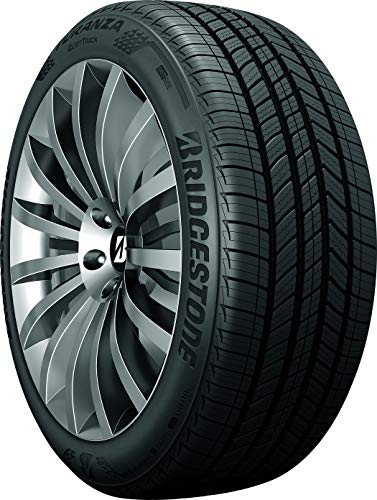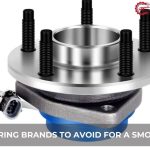When it comes to choosing the right tire brand for your vehicle, it’s important to consider the many factors that can impact your driving experience. Two of the most popular brands on the market today are Yokohama and Bridgestone. While both brands offer high-quality tires, they each have their own unique strengths and target audiences.
Yokohama is known for its focus on performance, with a range of tires designed for drivers who prioritize speed, handling, and precision on the road. Bridgestone, on the other hand, is renowned for its innovative technology and commitment to safety, making it a popular choice for families and drivers who prioritize reliability and peace of mind. When choosing between these two brands, it’s important to consider your own driving needs and preferences.
Other factors to consider when choosing a tire brand include price point and warranty coverage. While both Yokohama and Bridgestone offer a range of tires at different price points, it’s important to choose a tire that fits your budget without sacrificing quality or safety. Additionally, warranty coverage can provide added peace of mind in case of unexpected issues or defects. By weighing these factors and considering your own driving needs, you can make an informed decision when choosing between Yokohama and Bridgestone tires.
Brand Heritage and Philosophies
Yokohama
Yokohama is a Japanese tire manufacturer that has been in the industry for over a century. The company’s focus on innovation and performance is evident in their involvement in motorsports, such as Formula 1. This commitment to cutting-edge technology and performance is reflected in their tire designs, which cater to a wide range of driving styles.
Yokohama’s product range includes tires for passenger cars, trucks, and SUVs, and they offer a variety of features such as all-season, winter, and high-performance options. The company’s dedication to providing high-quality tires that deliver exceptional performance has made them a popular choice among drivers worldwide.
Bridgestone
Bridgestone is a well-known tire manufacturer that has built a reputation for premium quality and cutting-edge technologies. The company’s focus on fuel efficiency and noise reduction has made them a popular choice among drivers who value these features.
Bridgestone’s commitment to safety and long tire life is reflected in their tire designs, which are engineered to provide exceptional performance and durability. The company offers a wide range of tire options, including all-season, winter, and high-performance tires, to cater to the needs of different drivers.
Tire Segment Breakdown: A Performance-Focused Comparison
Passenger Car Tires
When comparing Yokohama and Bridgestone’s passenger car tire offerings, it’s important to consider all-season, performance summer, and touring options.
For all-season tires, both brands offer reliable options. Yokohama’s AVID Ascend GT and Bridgestone’s Turanza QuietTrack are two models to consider. The AVID Ascend GT is known for its quiet and comfortable ride, while the Turanza QuietTrack offers impressive wet weather performance and handling.
In terms of performance summer tires, Yokohama’s ADVAN Sport V105 and Bridgestone’s Potenza RE-71R are both popular choices. The ADVAN Sport V105 emphasizes sporty handling and responsiveness, while the Potenza RE-71R offers high-performance capabilities with its unique construction and technology.
For touring tires, both brands offer options that balance comfort, treadwear, and highway performance. Yokohama’s AVID Touring-S and Bridgestone’s Ecopia EP422 Plus are two models to consider. The AVID Touring-S is known for its quiet and comfortable ride, while the Ecopia EP422 Plus offers impressive fuel efficiency and durability.
Light Truck and SUV Tires
When comparing Yokohama and Bridgestone’s light truck and SUV tire options, it’s important to consider all-terrain, highway terrain, and performance SUV options.
For all-terrain tires, Yokohama’s Geolandar A/T G015 and Bridgestone’s Dueler A/T Revo 3 are two models to consider. The Geolandar A/T G015 offers a balance between on- and off-road performance, with impressive mud and snow traction. The Dueler A/T Revo 3 emphasizes durability and off-road capability.
For highway terrain tires, both brands offer options that prioritize comfort, treadwear, and highway handling. Yokohama’s Geolandar H/T G056 and Bridgestone’s Dueler H/L Alenza Plus are two models to consider. The Geolandar H/T G056 offers a comfortable and quiet ride, while the Dueler H/L Alenza Plus emphasizes fuel efficiency and durability.
For performance SUV tires, Yokohama’s ADVAN Sport A/S+ and Bridgestone’s Dueler H/P Sport AS are both popular choices. The ADVAN Sport A/S+ emphasizes handling, grip, and responsiveness, while the Dueler H/P Sport AS offers high-performance capabilities with its unique construction and technology.
Additional Considerations for Tire Selection
When choosing between Yokohama and Bridgestone tires, there are a few additional factors to consider beyond performance and features. Here are some key points to keep in mind:
Price Point
Yokohama tires tend to be more value-oriented, while Bridgestone tires are often positioned at a premium price point. However, it’s important to note that specific tire prices can vary depending on the model, size, and retailer. It’s always a good idea to shop around and compare prices before making a purchase.
Warranty Coverage
Both Yokohama and Bridgestone offer warranties on their tires, but the terms can vary. Typically, both brands offer treadwear warranties of up to 80,000 miles, but Bridgestone’s warranties may be slightly more generous. It’s also worth noting that Bridgestone offers a road hazard warranty, which covers damage caused by road hazards like potholes, while Yokohama does not.
Availability and Customer Service
Both Yokohama and Bridgestone tires are widely available at retailers, so finding the right tire for your vehicle should not be a problem. However, there may be some differences in customer service reputation between the two brands. While it’s always a good idea to read reviews and do your research, both brands generally have a good reputation for quality and customer support.
Choosing the Right Tire Brand: Yokohama vs. Bridgestone
When it comes to choosing the right tire brand for your vehicle, you want to make sure that you are getting the best value for your money. Two of the most popular tire brands on the market today are Yokohama and Bridgestone. Both brands offer a wide range of tire models with unique tread patterns and performance characteristics. So, which one is the right choice for you?
Factors Influencing Brand Selection
The best tire brand choice depends on individual needs, driving style, vehicle type, and budget. Here are some factors to consider when deciding between Yokohama and Bridgestone tires:
- Performance Priorities: What are your performance priorities? Do you prioritize handling, comfort, fuel efficiency, or wet/dry traction? Bridgestone tires are known for their superior handling, while Yokohama tires are known for their comfortable ride and fuel efficiency.
- Noise Preferences: Do you prefer a quiet ride or are you okay with a little road noise? Bridgestone tires are generally quieter than Yokohama tires.
- Value Proposition: Are you looking for a high-quality tire that offers great value for your money? Yokohama tires are generally less expensive than Bridgestone tires, but they still offer good performance and durability.
- Warranty Coverage: Do you want a tire with a good warranty? Both Yokohama and Bridgestone offer good warranties on their tires, so you can trust that you are getting a quality product.
Conclusion: Picking the Perfect Fit
In conclusion, both Yokohama and Bridgestone offer quality tires with unique features and benefits. Here is a brief summary of what sets them apart:
Yokohama Tires
- Affordable pricing
- Good performance in dry conditions
- Good selection of tires for trucks and SUVs
- Respectable lifespan
Bridgestone Tires
- Higher price point
- Better warranties
- Superior performance in wet conditions
- Better fuel efficiency
- Quieter ride
- Longer lifespan
When it comes to choosing between Yokohama and Bridgestone, it’s important to consider your individual needs and driving habits. Are you looking for a budget-friendly option? Do you frequently drive in wet conditions? Do you prioritize fuel efficiency?
Additionally, it’s crucial to research specific tire models within each brand to find the perfect fit for your vehicle. Consulting a tire professional can also provide personalized recommendations based on your unique needs.
Related Posts:
- Comparing Michelin CrossClimate 2 vs Nokian WR G4: A Friendly Tire Showdown
- Continental Cross Contact LX25 vs Michelin Cross Climate SUV: Which is Better?“
- Falken Wildpeak AT3W vs BFG KO2: Which is the Better Off-Road Tire?
- Goodyear Assurance MaxLife Review: A Friendly Guide to Choosing the Best Tires
- Goodyear Assurance MaxLife vs Michelin Defender2: Which One is Right for You?
- Goodyear vs Michelin: Which Tire Brand is Better?
- Michelin Defender2 Review: A Friendly Guide to Choosing the Best Tires
- Yokohama vs Bridgestone: Which Tire Brand is Better?

















